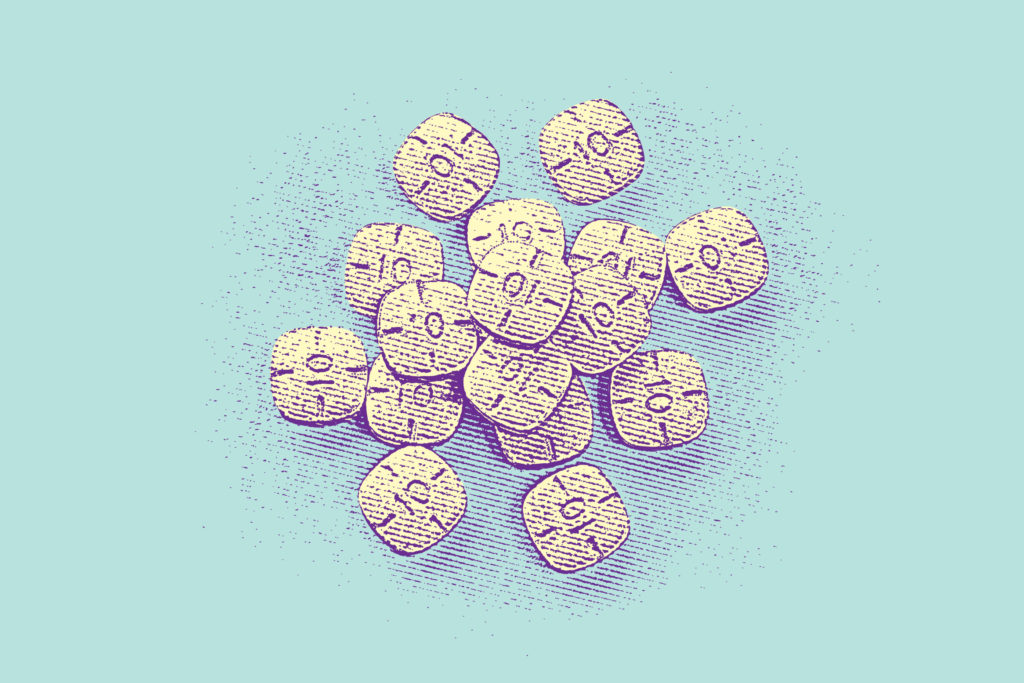By Wesley Gallagher
You’ve likely heard of Adderall abuse on college campuses, as well as the prevalence of eating disorders among college-age women. But did you know there is actually a connection between eating disorders and Adderall abuse? The stimulant is not just used for studying; many young adults also use it as an appetite suppressant.
According to a study from the Substance Abuse and Mental Health Services Administration (SAMHSA), full-time college students between ages 18 and 22 are twice as likely as their non-full-time college student counterparts to use Adderall for non-medical purposes. Prescription drug abuse has become an epidemic on college campuses, with more than 4 out of 10 saying they have abused prescription stimulants.
Adderall: The Study Drug for Weight Loss
 Young women entering college are experiencing an inordinate amount of stress and pressure for many reasons. Most college freshmen are worried about gaining the “freshman 15” — the typical extra weight many new students put on. The need to achieve academic and social success is paramount. And the more competitive the school environment is, the more pressure the student feels to succeed. This is where Adderall comes in: a drug that promises the ability to stay focused while studying and suppresses the desire to stress-eat so you can avoid weight gain.
Young women entering college are experiencing an inordinate amount of stress and pressure for many reasons. Most college freshmen are worried about gaining the “freshman 15” — the typical extra weight many new students put on. The need to achieve academic and social success is paramount. And the more competitive the school environment is, the more pressure the student feels to succeed. This is where Adderall comes in: a drug that promises the ability to stay focused while studying and suppresses the desire to stress-eat so you can avoid weight gain.
While Adderall will suppress appetite and increase the metabolism of almost anyone who takes it, those who have the potential to abuse it are typically biologically predisposed toward disordered eating. Adderall can bring out disordered eating behavior in someone who hasn’t dealt with that behavior before.
Adderall abuse for weight loss in itself isn’t exactly an eating disorder, but it’s a symptom of other eating disorders like anorexia and binge eating disorder. Women who already have a malnourished brain due to restricting food may even convince themselves they suffer from ADHD and need Adderall, when really, they need to increase their food consumption. Those suffering from anorexia will use Adderall as a way to restrict weight even more, and people engaging in binge episodes can use Adderall for alternative episodes of restricting food for long periods of time.
While Adderall will suppress appetite and increase the metabolism of almost anyone who takes it, those who have the potential to abuse it are typically biologically predisposed toward disordered eating.
Types of Eating Disorders
Eating disorders, like the people who suffer from them, come in many different forms. But they typically fall under the following categories:
- Anorexia nervosa is perhaps the most well-known eating disorder, characterized by weight loss, difficulties maintaining an appropriate weight, and distorted body image. This is usually due to restricted calorie intake, but compulsive exercise, purging, and bingeing are also potential characteristics.
- Bulimia nervosa is characterized by instances of overeating, or bingeing, followed by purging in the form of vomiting and using diuretics or laxatives.
- Binge eating disorder is characterized by repeated consumption of large amounts of food due to compulsion rather than hunger. It involves eating more quickly than usual and until uncomfortably full.
There are other less common eating disorders that don’t fall under these three categories, including pica, rumination disorder, and avoidant/restrictive food intake disorder.
It’s important to remember that eating disorders don’t always look like the stereotypically thin, young white girl — they affect people of all ages, races, genders, and sizes. And just because someone is exceptionally thin or extremely overweight does not mean they suffer from an eating disorder. These misconceptions must be dismantled so people can get the help they need.
The Dangers of Adderall Abuse
Adderall produces dopamine in the brain, which is a neurotransmitter that suppresses appetite. It keeps the dopamine from being recycled and metabolized. This means we connect taking Adderall with a feeling of pleasure, and this undoubtedly leads to high potential for abuse or Adderall addiction for those who have not been prescribed the drug. When you take a stimulant medication, or any medication improperly, after three or four months of taking it, the brain restructures itself. You become tolerant so you have to take more of the drug to get the same effects.
Adderall can even be deadly. Without having a doctor go over your medical history and health problems, the drug could react with an underlying health problem for serious side effects that include:
- Abnormal heartbeat and cardiac risks
- Increased blood pressure
- Increased risk of stroke and heart attack
- Seizures
- Hair loss
- Sudden death
Used in excess, Adderall has the potential to bring out OCD, psychosis, paranoid personalities, and delusions. Psychological effects of Adderall and eating disorders can be serious.
When taking Adderall for weight loss, you are dealing with the negative side effects of Adderall abuse along with the issues that accompany an eating disorder.
When taking Adderall for weight loss, you are dealing with the negative side effects of Adderall abuse, along with the issues that accompany an eating disorder. Anorexia and bulimia cause thinning hair, low blood pressure, heart palpitations and heart failure, weak muscles, dizziness, insomnia, and can make it difficult or impossible to get pregnant.
While at first Adderall may seem like the miracle study and weight loss drug, the reliance on the drug is not sustainable. Suffering the physical, mental, and emotional consequences of Adderall addiction is an inevitable fate for the abuser. It’s not unlikely that the user could eventually turn to cocaine or methamphetamines. For this reason, treatment for Adderall addiction is crucial.
The Connection Between Adderall Abuse and Eating Disorders
Young adults struggling with eating disorders may turn to Adderall to cope, despite the health risks of combining Adderall and eating disorders. Psychological, societal, and physiological factors all play into these risks, and some of the following signs of Adderall abuse may be present:
- Perceived Weight Loss Benefits: Adderall and other stimulant medications are known to suppress appetite and increase metabolism, making it a seemingly attractive way to achieve rapid weight loss.
- Enhanced Control: Eating disorders are often driven by a sense of control over your body and life. Adderall can give the illusion of heightened control, as it boosts focus and energy levels. This perceived control may lead you to believe you can better manage your eating habits by abusing stimulants.
- Mood Alteration: Adderall can induce feelings of euphoria and heightened confidence, leading you to self-medicate to alleviate anxiety, depression, or low self-esteem that often accompany eating disorders.
- Social Pressure: Peer influence and societal pressures to excel academically and maintain a certain appearance can drive you to misuse Adderall. You may see it as a way to juggle the demands of school, work, and your eating disorder.
- The Cycle: Combining an eating disorder with Adderall abuse can create a vicious cycle. As the stimulant suppresses appetite, you may continue to damage your health unknowingly, exacerbating the underlying eating disorder.
It’s important to emphasize the dangers of Adderall misuse, especially when it comes to eating disorders. It can lead to addiction or severe physical and mental health problems, and it may worsen the eating disorder itself. If you know someone who may be struggling with co-occurring disorders with Adderall and eating disorders, or other substance abuse, encourage them to seek professional help.
The Meadows Ranch Can Help with Co-Occurring Addictions and Eating Disorders
Amphetamines and stimulants are dangerous enough without the added risk of an eating disorder. At The Meadows Ranch, we have treated eating disorders for more than 25 years. Our programs offer help for Adderall abuse and eating disorders through a treatment plan that is customized for you. Whether you need inpatient, residential, or partial-hospitalization levels of care, we will help you find the path that will work best for you. For more information about recovery from Adderall abuse and eating disorders, reach out today.

